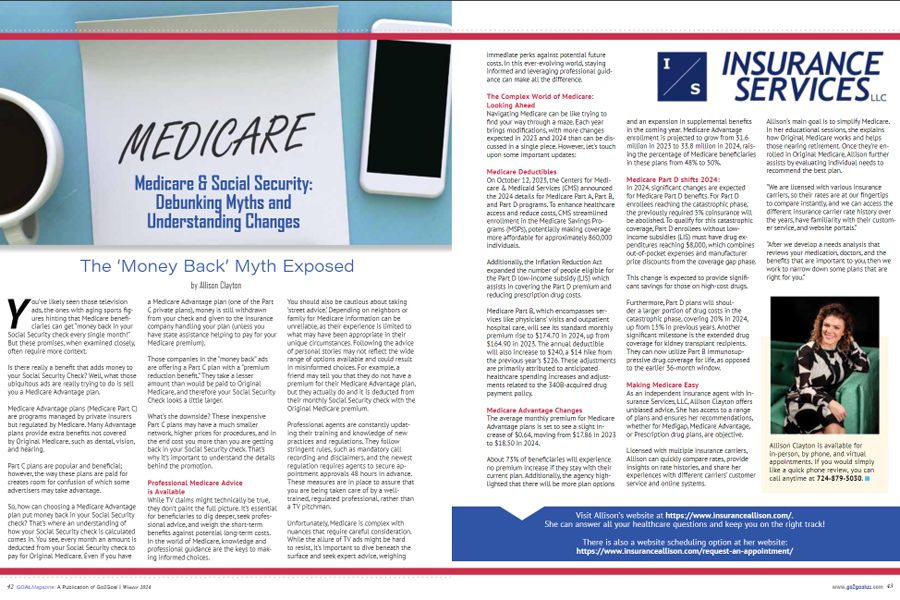
Medicare enrollment simplifications coming in 2023!
March 14, 2021
Medicare Part D, Insurance for Your Medication Needs
August 15, 2022
Covid, the virus, corona 19… No matter what you call it, this might be consuming a lot of your medical thinking time. All the while, cancer is sneaking along in the background. And that deserves some attention..
According to the American Cancer Society, lung cancer is the #2 cancer for both men and women. It makes up 25% of all cancer deaths each year. They estimate there will be over 235,000 new cases this year, and 1.9 million overall. Prevention and early detection (testing) is critical and yet many don’t want to take the time out of busy schedules to get the screenings that could very well prevent one of the most prominent and deadly diagnoses of the decade.
Did you know that Medicare covers several preventative screenings for cancer? Medicare covers a mammogram screening to check for breast cancer once every 12 months for women with Medicare who are 40 and older. Part B covers Pap tests and pelvic exams to check for cervical and vaginal cancers. Medicare covers these screening tests once every 24 months. Colorectal cancer screenings are covered by Medicare to help find precancerous growths or find cancer early, when treatment is most effective. The most commonly known is the colonoscopy and this test generally is covered once every 120 months. Lung cancer screenings are covered once per year if you meet certain requirements. And PSA (Prostate Specific Antigen) tests are covered once a year for men over 50 . Please see the 2021 Medicare and You handbook found on medicare.gov for more detailed information about these screenings, requirements, and other important information.
I highly recommend early and frequent preventative testing to protect yourself; but there are other ways you can help with costs of procedures, hospital stays, ongoing treatments, and even travel costs. Have you heard of a cancer policy? Did you know there even was such a thing? Many individuals I talk to about this actually have never heard of one. It is a simple concept. You can purchase an insurance policy to p are an inexpensive way to protect yourself from unforeseeable cancer related costs. Let’s look at an example of one type of policy.
Jane is 65 years old and would like a $10,000 cancer policy that pays out if she is diagnosed with internal cancer. Her premium might be around $28 monthly, subject to that she hasn’t had cancer in the last 10 years and cannot get cancer during the first 30 days of the policy start date. Jane gets the policy and has it for one year when she is diagnosed with lung cancer. Once she submits her claim, and proof she is diagnosed, her policy will send her a check for $10,000. It really is that simple.
Care for the intense and prolonged aspects of cancer treatment can be financially crushing. Use of a cancer coverage policy helps to protect the interests of your family, and the burden on your own mind.
If you have any questions, please feel free to contact me directly for more detailed information about preventative testing with Medicare and how cancer policies work. Email Allison Clayton at AllisonEClayton1@gmail.com or call directly 724-879-5030.
References:
https://www.medicare.gov/sites/default/files/2020-12/10050-Medicare-and-You_0.pdf
https://acsjournals.onlinelibrary.wiley.com/doi/full/10.1002/cncr.32802
R Sherman, R Firth, P De, et al, eds. Cancer in North America: 2012‐2016. Volume One: Combined Cancer Incidence for the United States, Canada, and North America. North American Association of Central Cancer Registries, Inc; 2019.
American Cancer Society – Cancer Facts and Figures 2020; viewed 4/2021


